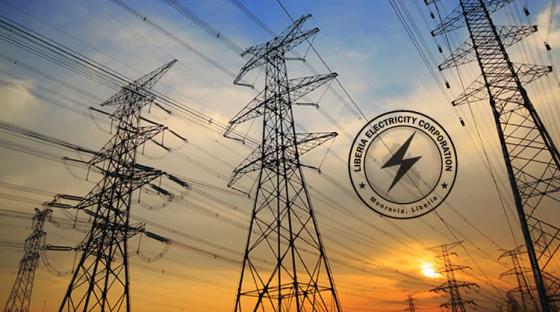Liberia: ‘GoL Buys Generators’ to Stabilize Power in Sierra Leone

Liberia’s failure to connect to the CLSG power to fill in the electricity gap, as a result of debts and the deposit of security fees has cost the country to buy two (2) 200 KVA generators to uphold to stabilize the CLSG power in neighboring Sierra Leone.
The generators are intended to beef up the capacities of substations built along the transmission lines where the power from Cote d’Ivoire is directly emptied for onward transmission to the designated site, which in this case is Sierra Leone.
The startling revelation by Montserrado County District #1 Representative, Lawrence Morris yesterday in plenary was made in the presence of the Ministry of Mines and Energy, the Liberia Electricity Corporation (LEC), and the Liberia Electricity Regulatory Commission (LERC).
The energy authorities had been cited to provide reasons for the unusual power outages of electricity being experienced in Monrovia and its environs.
According to Rep. Morris, the Weah-led government paid thousands of US dollars for the two generators as a means of stabilizing the power amid power outages in Liberia, because of the country’s inability to meet up with the commitment of the CLSG Project.
He added that the “generators” are kept at the Mount Coffee Hydro in his district — Harrisburg, while the largest referral hospital and his district lacks current. Harrisburg is located in Bensonville, the Capitol City of Montserrado County.
The CLSG Interconnector project involves the construction of a 1,350 km transmission line allowing power exports from Côte d’Ivoire to Liberia, Sierra Leone, and Guinea.
The interconnector aims to provide these countries with an increased supply of electricity to meet growing demand and to create incentives for hydropower potentials, such as in Sierra Leone and Guinea, to be realized. Approximately 12.5% of the total Project cost will finance rural electrification, with an ITF Direct Grant Operation to cover the extra costs of implementing this in Sierra Leone.
In Sierra Leone, President Julius Maada Bio has officially switched on the CLSG electricity interconnection line at Teloma for power in the south and east of the country. It involves the construction of an approximately 530 km, 225kV power line through seven districts, according to TRANSCO CLSG, the regional power interconnection facility owner and transmission service provider.
For Liberia, TRANSCO noted in a blog post that the 225kV transmission line from Man in Cote d’Ivoire into Monrovia in Liberia has been constructed and energized and the overall progress of the CLSG Project is estimated at 93%. The company added that the line section from Man to Monrovia has been fully energized and the synchronization with the Mt Coffee Hydro Power Plant (HPP) is ongoing.
“The 132kV connection between the CLSG substation in Monrovia and the Liberia Electricity Company (LEC) Mt Coffee HPP is completed. Additional tests are ongoing on the 66kV Busbar differential protection at the request of LEC,” the company said. “The line sections from Monrovia to Mano in Liberia, from Mano to Kenema, Bikongor and Bumbuna up to Yiben in Sierra Leone are all completed and await sequential commissioning from Liberia before they are energized. The line section from Yiben to Kamakwie and Linsan in Guinée is about 74% complete, while the section from Yekepa to Nzerekoreh is about 95% complete.”
Meanwhile, Information Minister Ledgerhood J. Rennie in response to the inquiry told the Daily Observer that he needed “to make a few inquiries” before responding.
But Philip Jacques of LEC, while appearing before the House did not deny or confirm Rep. Morris's allegation. Rather, he disclosed that the country is experiencing power outages as Mount Coffee Hydro is producing less power “due to the low flow of water from the St. Paul River.”
According to him, the bringing of the CLSG power could fill in the electricity gap of supply and demand but, because of the failure of the country to pay the debts, the CLSG power is yet to come.
Though Jacques failed to spell out the debts, Finance Minister Samuel Tweah is on record for having said that, to start the CLSG project, the government needs to pay US$10.4 million. The Minister added that the real cost of the electricity that comes from neighboring Cote d’Ivoire is US$3.6 million a month.
Minister Tweah said the country will have to pay for two months — a total of US$7.2 million — for what he termed as a security deposit before the CLSG project takes full effect. He added that the Liberian government owes their Ivorian counterpart a sum of US$9 million for cross-border trade of electricity in Maryland and Nimba Counties, which LEC has not paid for the last three years.
Accordingly, Tweah says before Liberia is connected to the CLSG power, the country has to deposit US$2 million and the remaining debt will have to be paid at the rate of US$550,000 every month until the nine million is cleared. He furthered that the Liberian government will have to pay US$62,000 every month for the transmission of the line to the management of the CLSG.
Meanwhile, the Managing Director of LERC, Augustus Goanue, said the power outages are due to supply and demand, as well as technical issues.
In support, the Deputy Minister for Energy at the Ministry of Mines and Energy, George Gontor said the current reservoir at the Mount Coffee Hydropower Plant is low on water to sufficiently supply the four turbines and has caused one turbine to produce 18MW and another producing 16MW, reducing supply amid high demands.
Also, the House of Representatives has voted to release the witnesses, who will be called again to give updates on the power outages.
